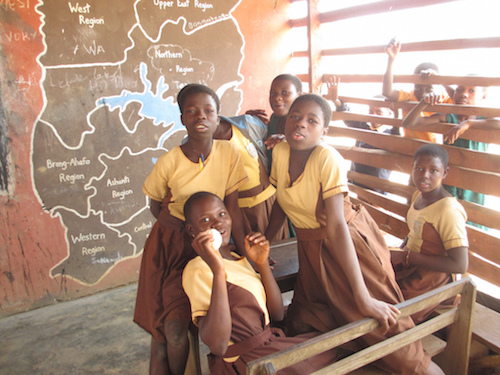
Earlier this week, Ghana’s Ministry of Gender, Children and Social Protection launched a new National Gender Policy. The policy, which builds on the country’s 2004 National Gender and Children Policy, recognises women’s empowerment as critical to development and outlines a strategy to mainstream gender equality considerations into the country’s development processes.
One key avenue to achieving greater gender equality? Increasing women’s access to science and technology. The policy underscores the existing gender gap “in access to science and technology, digital knowledge and skills” and the challenge of bridging this gap so as “to include women’s needs and strategic interests in the establishment of a digital knowledge-based society”.
The Web Foundation’s recent Women’s Rights Online survey of 10 developing countries unveiled the worrying extent of this divide. The report found that women are nearly 50% less likely to access the Internet than men in the same communities, with Internet use reported by just 37% of women surveyed; once online, women are 30-50% less likely than men to use the Internet to increase their income or participate in public life. Limited digital skills represent a significant barrier to women’s Internet access and use — the women surveyed for the report were nearly two times more likely than men to report lack of skills as a barrier to Internet use. The result? Only a small minority of women Internet users are tapping into technology’s full empowering potential, limiting women and girls’ access to information, claiming of rights, and inclusion in the knowledge economy.
Ghana’s new National Gender Policy outlines broad recommendations for tackling this challenge and closing the online gender gap. It calls for an “ICT friendly environment” for all — and especially for women — in schools, workplaces, homes, and social centres, and calls for improved “collection and documentation of gender sensitive data about Ghana”.
The benefits of digital inclusion for women’s empowerment are not only lost due to digital skills gaps, but also largely due to affordability constraints. Our 2014 Affordability Report showed that poor people in many developing countries must sacrifice a third or more of their monthly wages for just 500GB of mobile data; the report also highlighted the fact that gendered income inequalities result in the real cost to connect being much higher for women. Making broadband affordable is a prerequisite to increasing women’s online access, and enabling them to fully unlock digital opportunities.
We commend Ghana’s gender advocates — who have and continue to serve as an example for the region — as well as the Ministry of Gender, Children and Social Protection for their leadership in addressing the social, legal, civic, political, economic and socio-cultural inequalities faced by women. The strategy outlined to overcome these inequalities is a building block for women’s empowerment and for national development, and is one that we at A4AI are eager to support.
Developing a detailed implementation plan that ensures equal Internet access in Ghana will be critical to achieving the policy’s outlined goals, as well as the recently agreed Sustainable Development Goals to promote the empowerment of women by enhancing the use of ICT and other enabling technology (5b) and to “provide universal and affordable access to the Internet in least developed countries by 2020” (9c).
The A4AI-Ghana National Coalition has been hard at work spearheading policy reforms to promote equal and more affordable access, including efforts to improve data collection around ICT access and use — a critical step in fully understanding the current status of the divide and in measuring progress made toward closing that divide. We look forward to continuing to support the Coalition and other partners and local actors supporting the development and promotion of an ICT and development agenda with gender equality at its heart.
Leave a Reply
